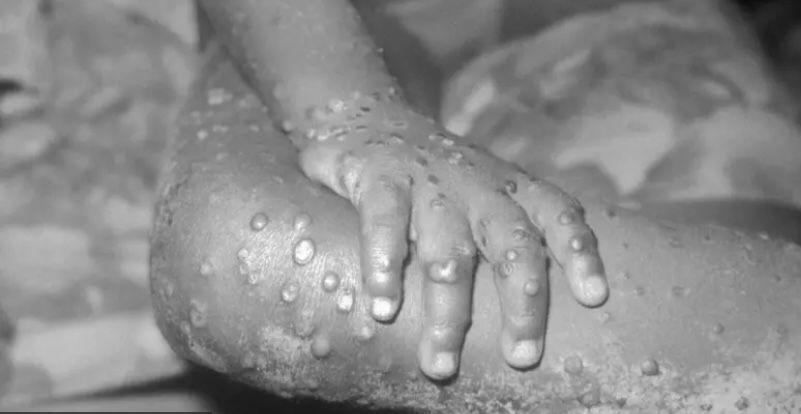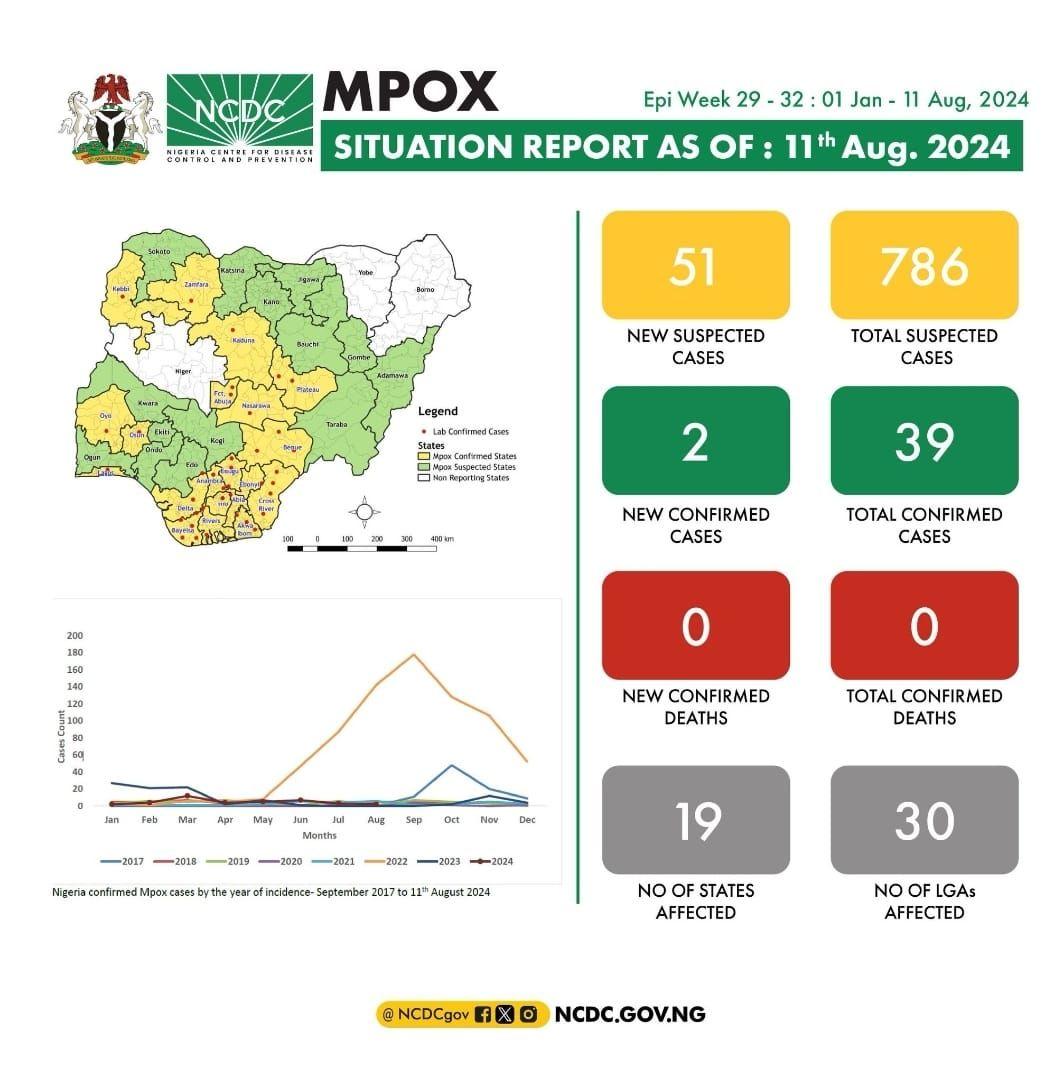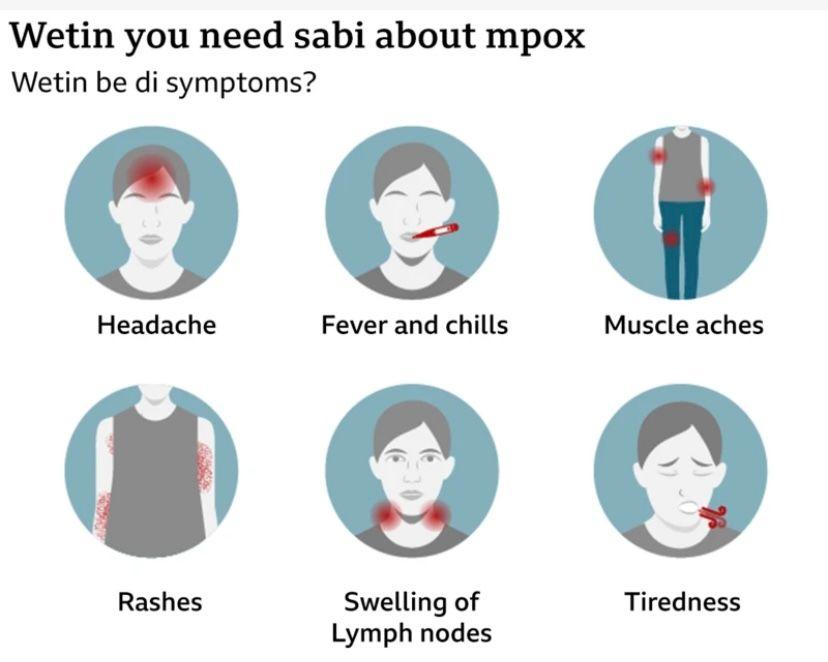
Abia State for south-eastern Nigeria don record one incident of mpox, formerly monkeypox.
Commissioner for Information, Prince Okey Kanu, as e tok dis wan say dem get 13 suspected cases wey one test positive, 9 test negative, and 3 dey uncertified, wit no death recorded yet.
E say di confam case dey for Isialangwa and di state goment don open centres, including di Abia State University Teaching Hospital, and add say “more centres dey come soon.”
Latest reports from di Nigeria Centre for Disease Control and Prevention NCDC, Nigeria get a total of 39 confam cases wit zero deaths wey dey recorded across 33 states plus di FCT Abuja.
Di states wit leading recorded cases na Bayelsa wit 16 cases, Cross River wit 5 cases, Ogun wit 4, Lagos 4, Ondo 3 and Ebonyi wit 3 cases.
- Kontris begin put in place health measures to control spread of Mpox
- WHO declare say Mpox na global health emergency
- Wetin you need to know about mpox vaccine

Mpox na rare viral zoonotic infectious disease – dat na disease of animals wey dey transmitted from animals to humans – and e dey endemic to many African kontris including di tropical rain forests of Central and West Africa.
Di exact reservoir of di virus still dey unknown but rodents, squirrels and monkeys dey suspected to play a part in transmission.
Mpox virus fit spread from animal to human and from human to human. Animal to human transmission fit occur by direct contact wit blood, body fluids or mucosallesions of infected animals, wey fit happun thru a bite, scratch, handling of or eating food wey dem no cook well or products of infected bushmeat.
Human to human transmission fit occur wen pesin come in contact wit di virus from an infected human or materials wey dey contaminated wit di virus like clothing or beddings.
Signs and symptoms include fever, headache, body aches, weakness, swollen lymph nodes (glands) and a rash. Afta about one to three days, di rash go come out for di face, den spread to di body wit di face and palm/soles mostly affected. Dem also fit occur around di genitals and dat na im make sexual contact anoda means of transmission.

How to prevent di spread of mpox
NCDC dey ask pipo to keep di proven infection prevention and control measures wey include:
- Avoid contact with animals wey fit carry di virus including sick or dead animals for areas dem don confam say mpox dey.
- Avoid contact with any material wey don dey in contact with a sick animal.
- Avoid unnecessary contact with pesin wey dey infected with mpox.
- Isolate potentially infected animals from oda animals.
- Practice frequent handwashing wit soap and water especially afta caring for or visiting sick pipo.
- Ensure say all animal food products dey properly cooked bifor eating.
- Use appropriate protective clothing and gloves while handling sick animals and during di slaughtering process.
- Report all cases wit di associated symptoms wey dey mentioned above to di nearest health facility for care and call di NCDC toll-free line on 6232.
- Nigeria goment dey make effort to make vaccine available to di public especially for di hotspot areas. Di vaccine get favourable safety profile.
Health workers also dey advised to:
- Follow standard safety measures wen dem dey care for patients.
- Wash hands with soap and water after contact wit patients.
- Maintain high index of suspicion for mpox especially for patients wey present with fever and vesicular/pustular rash in all parts of Di kontri at dis time.
- Use precautionary measures during triage like wearing surgical mask ova nose and mouth of suspected patient and covering any exposed skin lesion wit sheet or gown
- Isolate all patients wey dey suspected to get mpox as soon as possible.
- Wear personal protective equipment bifor any close contact wit suspected cases and dispose am properly.
- Correctly disinfect all contaminated equipment using bleach unless e dey otherwise indicated and dispose all waste properly.
- Report all cases to di State Epidemiologist/ LGA Public Health Department immediately or call di NCDC toll-free line at 6232
- Samples taken from humans for investigation of mpox virus gatz dey handled by trained staff and sent to di NCDC.
Nigeria dey expect to receive 10,000 doses of Jynneos vaccine and di NCDC dey consider vaccination for high-risk groups.




